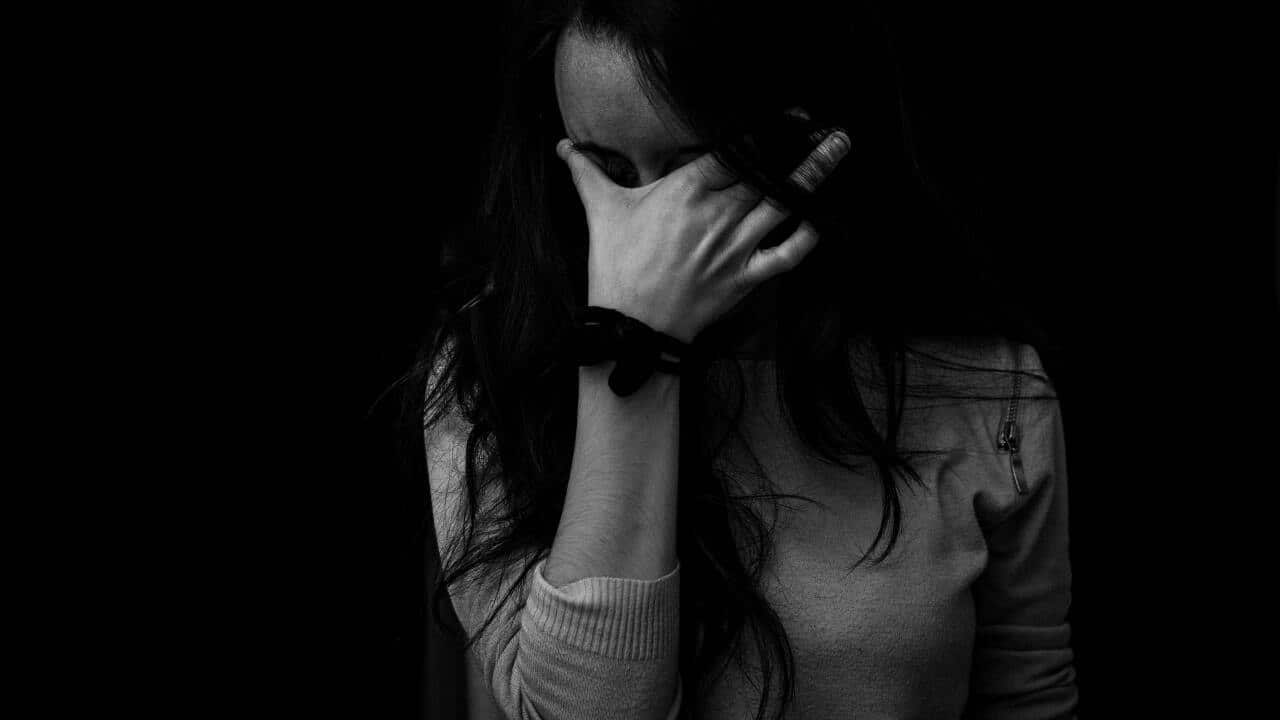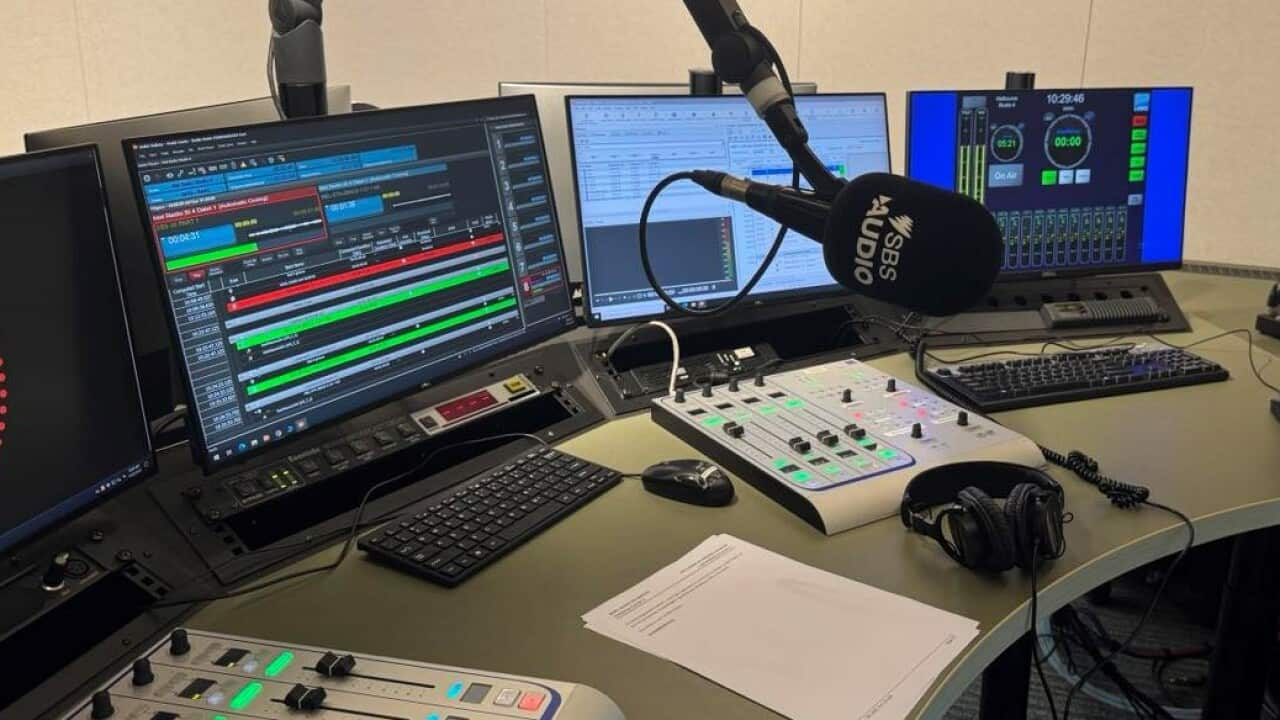Highlights
- 'Doomscrolling' is the obsessive behaviour of reading bad news.
- Hypervigilance, reassurance and a need to feel hopeful are reasons why people tend to doomscroll.
- Timing and amount of time reading the news can help alleviate anxiety over the pandemic.
"Ask yourself: how much bad news can I take for the day?"
Sydney-based psychologist Aimee Santos shares that while consuming bad news during a pandemic is inevitable, how much we consume can have a significant effect on how we cope.
'Doomscrolling'
Specialising in mood disorders, Aimee reveals that while the pandemic necessitates vigilance and cautiousness, easy and convenient access to information has also aggravated the anxiety in many people.
"Doomscrolling or the obsessive behaviour to read bad news starts from the feeling of being unsafe. We want to be able to calm down that fear and the internet makes information easily accessible," she shares.
"The hard thing about the pandemic is it's ongoing. It's not like a cataclysmic, one-off event like an attack of a volcanic eruption. It's not a short dash to the finish line - it's a marathon; so our fear and feeling of being unsafe is continuous. This leads us to constantly look for reassurance that we are okay." Aside from constantly looking for reassurance that we are okay, 'doomscrolling' comes from the need to be hopeful.
Aside from constantly looking for reassurance that we are okay, 'doomscrolling' comes from the need to be hopeful.

"Our obsessive behaviour begins with us feeling unsafe." Source: Ursula Schneider from Pixabay
"We try to combat the fear by hoping for something better. We're looking to appease ourselves - is there a vaccine on the way? Is there a cure? Can I go out?"
But when questions go unanswered, searchers tend to keep on looking. "Sometimes the problem is we don't find the answers we want so we continue on browsing and reading. It's not bad to be informed. We need to be, especially at this time. It's the obsession that is bad for our mental health.
"Sometimes the problem is we don't find the answers we want so we continue on browsing and reading. It's not bad to be informed. We need to be, especially at this time. It's the obsession that is bad for our mental health.

"It's not bad to be informed. We need to be, especially at this time. It's the obsession that is bad for our mental health." Source: Kaboompics .com from Pexels
"This obsession is especially bad for people who are already predisposed to anxiety and depression. It can make things worse. Sleep problems become common. Mood, appetite and even relationship problems may arise due to the heightened anxiety."
Dealing with heightened anxiety
Heightened anxiety during the pandemic is commonplace and Aimee shares that the first step to combating it is admitting you suffer from it. "From self-awareness, you'll be able to set boundaries in order to take care of your mental health. It's good to be informed, but set a proper time and time limit. Read the news in the morning because you need to know what affects you throughout the day, and try to limit it to 10 minutes.
"From self-awareness, you'll be able to set boundaries in order to take care of your mental health. It's good to be informed, but set a proper time and time limit. Read the news in the morning because you need to know what affects you throughout the day, and try to limit it to 10 minutes.

"Read the news in the morning because you need to know what affects you throughout the day, and try to limit it to 10 minutes." Source: Ketut Subiyanto from Pexels
"And if you're going to browse about COVID-related news, choose the proper websites that are veritable. Visit the website of the Department of Health and state websites. Try to avoid websites that simply publish doom and gloom features." Aimee shares that consuming news at night should be avoided if possible. She shares that the light from devices disrupt neurotransmitters in the brain and the production of sleep-inducing melatonin, while news can amp us back up again when we should be winding down.
Aimee shares that consuming news at night should be avoided if possible. She shares that the light from devices disrupt neurotransmitters in the brain and the production of sleep-inducing melatonin, while news can amp us back up again when we should be winding down.

Aimee shares that reading news at night should be avoided if possible. Source: Photo by Ivan Oboleninov from Pexels
"Reading at night can disrupt sleep and when sleep is disrupted, you tend to feel more anxious and depressed. You're less likely to make good decisions as well if you don't sleep well 3-4 days in a row."
Aimee suggests that doomscrolling be replaced with other more positive behaviours. "Work is a good distraction, as well as hobbies and leisure activities even if you're just at home. Deliberately focus on doing something productive - the operative word being 'deliberate'. Also make a concerted effort to laugh. Watch funny videos and shows. Connect with others and build that sense of community even if you can't do it in person right now, and also be empathetic with those suffering right now.
"Work is a good distraction, as well as hobbies and leisure activities even if you're just at home. Deliberately focus on doing something productive - the operative word being 'deliberate'. Also make a concerted effort to laugh. Watch funny videos and shows. Connect with others and build that sense of community even if you can't do it in person right now, and also be empathetic with those suffering right now.

"Connect with others and build that sense of community even if you can't do it in person right now." Source: Artem Podrez from Pexels
"The future is uncertain at the moment, so simply plan for the next, say, two hours. Be mindful, thinking that right here, right now, you are okay."
ALSO READ / LISTEN TO






